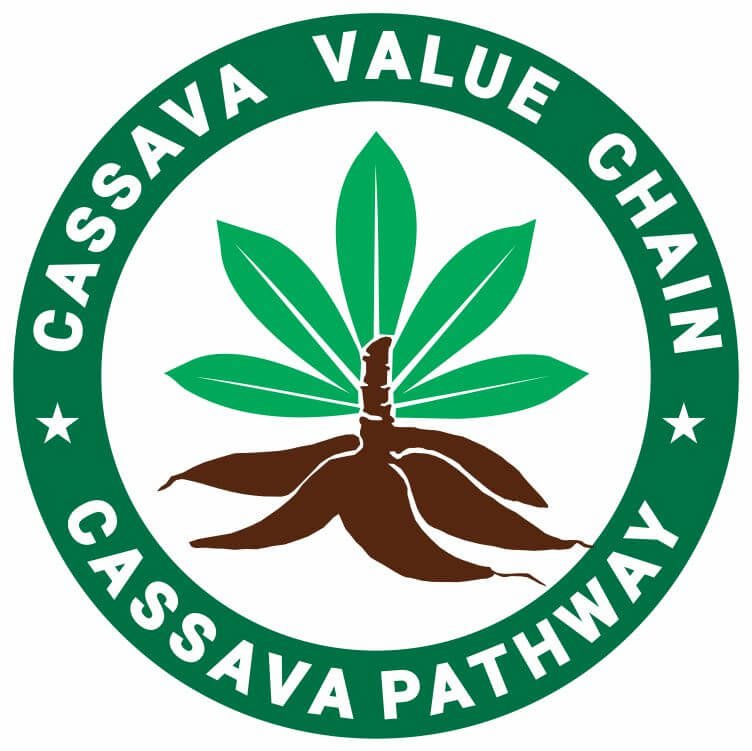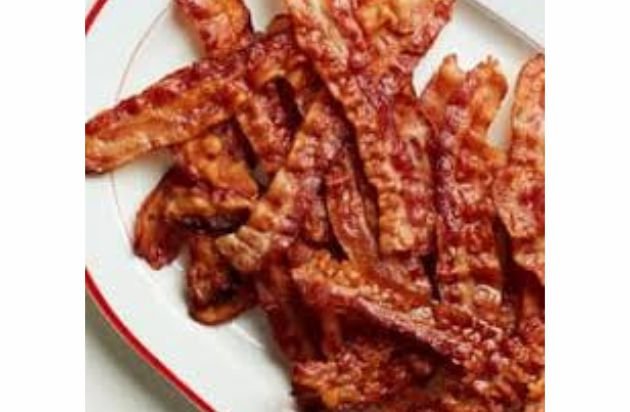Vegan cassava bacon turns cassava roots into crispy, smoky strips that crackle with flavor and challenge everything bacon is supposed to be.
Vegan cassava bacon is a plant-based option made for people who want the taste and crunch of bacon without meat.
It is made from cassava root, a gluten-free, starchy vegetable used in many cultures.
When sliced thin and cooked well, cassava becomes crisp with a smoky flavor that feels familiar.
This makes it appealing to vegans, vegetarians, and anyone cutting back on animal foods.
Many choose it for dietary needs or simple food choices.
Vegan cassava bacon works well in breakfast meals, sandwiches, salads, or as a snack.
It offers a simple way to enjoy texture and flavor while sticking to plant-based eating.
Table of Contents
What is Vegan Cassava Bacon?
Vegan cassava bacon is a plant-based substitute for pork bacon made from sliced cassava root. The strips are seasoned with smoky, salty flavors and cooked until crisp. It offers a meat-free, gluten-free option that keeps familiar texture and taste without animal products or cholesterol concerns for many.
Health Benefits of Vegan Cassava Bacon
This plant-based bacon option supports heart health, digestion, and cleaner eating while keeping meals familiar, crispy, and satisfying without relying on animal fat or cholesterol.
Lower Saturated Fat for Heart Support
Compared to pork bacon, this option contains less saturated fat, helping reduce strain on the heart, support circulation, and keep meals lighter and easier to digest.
No Cholesterol from Plant Sources
Because it comes from plants, vegan cassava bacon contains no dietary cholesterol, supporting healthier blood pressure levels and reducing risks linked to frequent animal fat consumption.
Fiber and Nutrients for Digestion
Cassava provides fiber that supports digestion, steadier blood sugar, and longer fullness, while also supplying minerals commonly found in root vegetables and whole foods.
Supports Sustainable Food Choices
Choosing vegan cassava bacon reduces dependence on animal farming, lowers environmental impact, and fits better into balanced eating habits focused on health and long term sustainability.
Ingredients for Vegan Cassava Bacon
The right ingredients shape flavor, texture, and aroma, turning simple plant foods into strips that cook crisp, taste smoky, and work well in familiar meals.
Cassava as the Base Ingredient
Cassava forms the foundation, offering a starchy structure that crisps when cooked.
Thin slices or strips create the chewy bite and light crunch expected from vegan cassava bacon.
Savory Seasonings for Umami Flavor
Soy sauce or tamari adds salt and depth, helping recreate the savory taste people expect.
These seasonings soak into cassava, building flavor before heat transforms texture.
Liquid Smoke for Smoky Notes
Liquid smoke brings the familiar smoky aroma linked to bacon.
Used sparingly, it adds depth without bitterness, blending smoothly with savory seasonings during marination.
Sweeteners and Oils for Texture
Maple syrup supports caramelization and balance, while light oils help even browning.
Together, they improve crisp edges, prevent dryness, and round out flavor during cooking.
Related Posts
Vegan Cassava Flour Cookies Recipe (Without Eggs)
Step-by-Step Recipe Instructions
Follow these clear steps to turn cassava into crisp, smoky strips with balanced flavor, steady texture, and reliable results using simple tools already available in most kitchens.
Prepare and Slice the Cassava
Start with firm cassava, peel away the thick skin completely, then slice into thin strips.
Even cuts help ensure consistent cooking and balanced crispness later.
Parboil for Better Texture
Boil sliced cassava briefly in salted water until slightly tender.
This step softens the root, prevents raw centers, and supports a chewy interior after cooking.
Marinate for Full Flavor
Coat the cooled strips in soy sauce, liquid smoke, maple syrup, and spices.
Let them rest so flavors soak in deeply before heat transforms everything.
Cook Until Crisp
Bake, pan fry, or air fry until edges brown and crisp. Watch closely, flip when needed, and cook vegan cassava bacon until texture feels firm yet slightly chewy inside.
Flavor Variations
Vegan cassava bacon can be seasoned in many ways to match your taste.
Small changes in spices, herbs, or glazes make a big difference in flavor and aroma.
Add Heat with Spices
Sprinkle chili flakes, cayenne, or smoked paprika over cassava strips.
These spices highlight smokiness and give a mild kick, letting you adjust the heat to your preference.
Sweet and Smoky Glaze
Mix maple syrup or brown sugar with seasonings to coat the strips.
The glaze caramelizes during cooking, adding crispiness and a balanced sweet-savory flavor.
Infuse Fresh Herbs
Toss cassava with rosemary, thyme, or other herbs before cooking.
They add earthy aromas and complement smoky, savory notes for a layered, enjoyable taste.
Mix Flavors for Creativity
Combine heat, sweetness, and herbs to create unique versions.
This flexibility lets you enjoy vegan cassava bacon in breakfasts, salads, or as a standalone snack.
Tips for Perfect Vegan Cassava Bacon
Making vegan cassava bacon crispy, flavorful, and enjoyable depends on a few careful steps.
Simple techniques during slicing, cooking, and storage can make a big difference in the final result.
Slice Thin and Even
Cut cassava into uniform strips about 1/8 inch thick. Consistent sizes help strips cook evenly, giving you crisp edges without burning or leaving soft spots.
Soak and Dry for Crispiness
Soak cassava in water with a splash of vinegar, then pat dry. Removing excess moisture helps the strips crisp during baking, frying, or air frying.
Cook at High Temperature
Bake, fry, or air fry at 400°F (200°C). High heat encourages golden edges, prevents sogginess, and keeps the interior pleasantly chewy.
Store and Reheat Properly
Cool cooked strips before storing in airtight containers. Refrigerate up to a week or freeze with parchment layers. Reheat in an oven or air fryer for best texture.
Serving Suggestions and Pairings
Vegan cassava bacon adds smoky, crispy flavor to meals, enhancing textures and tastes.
It works well in sandwiches, breakfast dishes, salads, bowls, or even as a snack.
Sandwiches and Wraps
Layer cassava bacon with lettuce, tomato, and plant-based mayo for a BLT or add avocado for extra creaminess. It also works in wraps with tofu or beans.
Breakfast Dishes
Crumble cassava bacon over tofu scramble, avocado toast, or breakfast burritos.
It adds crunch and savory depth, making morning meals more satisfying without meat.
Salads and Grain Bowls
Toss cassava bacon with greens, grains, roasted vegetables, or vinaigrette. Its smoky flavor enhances fresh, plant-based ingredients while adding texture and a savory punch.
Snacks and Appetizers
Serve strips with hummus, guacamole, or spicy dips. The crisp, smoky bites work as finger food, party snacks, or a simple plant-based treat anytime.
FAQs About Vegan Cassava Bacon
Can I Use Cassava Flour Instead of Slices?
Cassava flour cannot replace sliced cassava for bacon. Slices provide the texture and structure needed to achieve crispy, chewy, and smoky strips in this recipe.
How Should I Store Vegan Cassava Bacon?
Store cooled vegan cassava bacon in an airtight container in the fridge for up to a week, or freeze with parchment layers for longer preservation.
Can I Reheat Vegan Cassava Bacon?
Reheat cassava bacon in an oven or air fryer to restore crispiness. Avoid microwaving, which can make the strips soft or soggy.
Is Vegan Cassava Bacon Healthy?
It is lower in saturated fat, contains no cholesterol, and provides fiber and nutrients, making it a plant-based alternative to traditional bacon.

Chimeremeze Emeh is a writer and researcher passionate about Africa’s most transformative root crop—cassava. Through his work at cassavavaluechain.com, he explores the entire cassava industry, from cultivation and processing to its diverse applications in food, health, and industrial use.
He also writes for palmoilpalm.com, where he shares his extensive experience and deep-rooted knowledge of palm oil, covering red palm oil, palm kernel oil, and refined products. His work there reflects his lifelong connection to agriculture and his commitment to promoting sustainable value chains in Africa.
Driven by curiosity and purpose, Chimeremeze aims to shed light on how cassava continues to empower communities, strengthen food systems, and link traditional farming wisdom with modern innovation.

